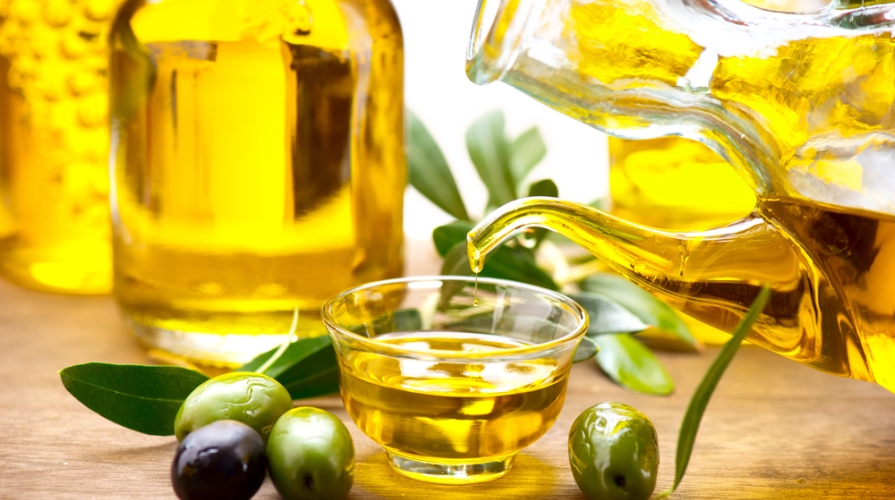
05 Mar Olive Oil Differences
Olive Oil Differences
Oil is at the base of a healthy and balanced diet and we have always been told that extra virgin olive oil is the best one… and it is true! But why?
First of all, let’s start by clarifying the distinction between virgin oil and extra virgin olive oil. Both belong to the category of virgin oils. These are obtained through a mechanical extraction process and do not undergo treatments through the use of solvents or other chemical processes.
The only treatments they could be subjected to are washing, settling, centrifugation, and filtration. The essential requirement is in any case that the oil must not be altered.
What is the difference between olive oil, virgin olive oil, and extra virgin olive oil?
So, what is the difference between extra virgin olive oil and virgin olive oil?
The answer is acidity.
Extra virgin olive oil must have all the characteristics described above and its extraction must take place exclusively through cold mechanical methods, i.e. at temperatures below 28°C. Cold extraction makes sure that the oil is not altered by different thermal conditions. In addition to that, it must have a maximum quantity of oleic acid of 0.8g per 100g.
Virgin olive oil, instead, in addition to being obtained through mechanical processes, must have a maximum quantity of oleic acid of 2g per 100g.
Keep in mind that the acidity we perceive through taste does not always correspond to the actual one, which is instead the result of a careful chemical analysis.
Olive oil, on the other hand, differs in the production process too compared to the category we have previously analysed. It is an oil obtained by blending refined olive oil with a virgin and/or extra virgin olive oil and has a quantity of oleic acid not exceeding 1g per 100 g.
The refined oil has undergone a chemical/physical process aimed at eliminating chemical and organoleptic defects. However, the legislation does not establish a minimum quantity of virgin oil that should be included in the mixture, therefore usually the percentage is minimal, enough to restore colour, smell, and taste to the oil, which would be otherwise rather insipid.
Extra virgin olive oil is also the richest in nutritional properties, is good for your health, and is perfect for seasoning food even raw. But extra virgin olive oil also has many hidden qualities that few people know.
Here are 10 facts for you
1. Extra virgin olive oil slows down brain aging and therefore keeps you young!
2. The FDA, the US agency that carries out checks on food safety and drugs, has officially recognized the beneficial properties of extra virgin olive oil for our health.
3. It is good for you because it lowers cholesterol levels and fights free radicals.
4. If the olives are harvested at the beginning of their maturation, the oil will be even richer in antioxidant properties.
5. You need about 7 kilos of olives to produce just 1 litre of oil! Here in Chianti, in fact, on average the oil obtained corresponds to about 11-12% of the weight of the olives.
6. Extra virgin olive oil should be consumed within 18 months of the harvest, although a good oil, if properly stored and harvested in the right period, can keep its organoleptic qualities unaltered for up to two years.
7. The best containers for extra virgin olive oil are not, as tradition wants, made of terracotta, but of stainless steel or opaque glass, which prevents the oxidation of chlorophyll in the light, responsible for the characteristic green colour. In addition, it is better to use containers with the bottom and the mouth narrower than the centre, so that contact with the residues that deposit on the bottom and with the air is reduced. The containers to absolutely avoid are the ones made of synthetic material, because they easily transmit their smell to the oil, completely ruining its fragrance and taste.
8. The grandmother’s remedy of taking some oil and honey to soothe the throat has scientific bases: in fact, extra virgin olive oil contains oleocanthal (responsible for the tingling and pungent sensation that you feel in the throat when you taste it), which is a substance with a strong anti-inflammatory action.
9. Extra virgin olive oil is an important ally of the health of our four-legged friends: added to dogs’ food it favours the flexibility of their joints, makes their coat shinier and softer, and prevents the cognitive decline of the animal. While a few drops in the wet food of our cat prevents the creation of bothersome hairballs in the stomach.
10. Professional oil tasters use a blue glass instead of a transparent one so as not to be influenced by the colour. In fact, it does not determine the quality of the oil. The quality depends exclusively on factors such as the type of raw material, the degree of maturation, and the extraction process.


No Comments